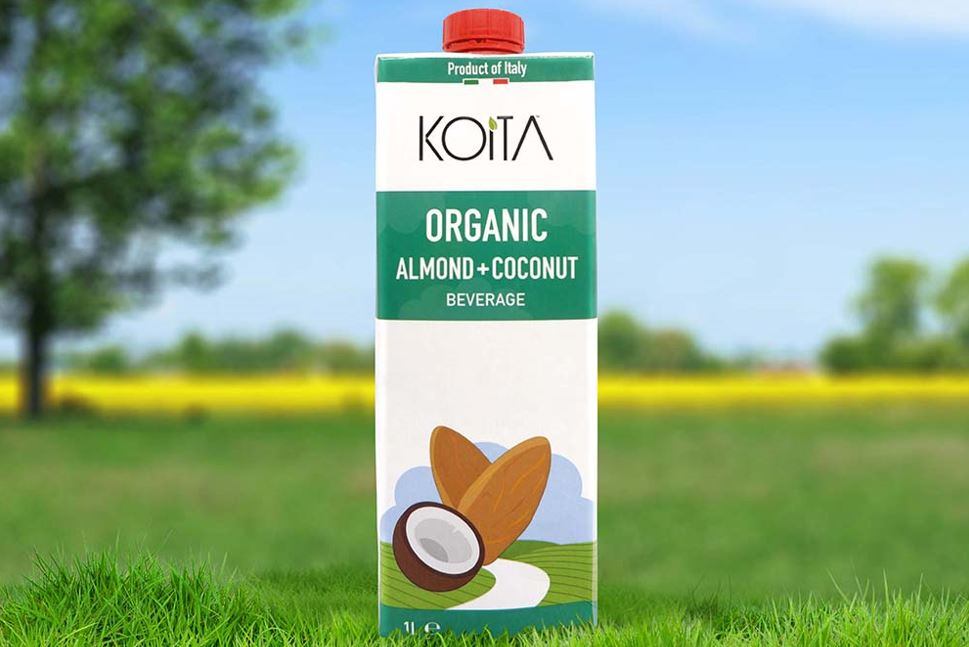Founded in 2013, the company sells a range of organic dairy milk, dairy-free beverages (plant-based) and lactose-free milk across Middle East, Asia and mostly recently the US.
Koita’s overall sales (online, offline) grew 57% year-on-year despite the COVID-19 pandemic. It recorded 370% year-on-year sales increase from just online sales this year.
The firm saw its biggest sales from plant-based products, following that the lactose-free range. Additionally, sales of cooking creams spike during the pandemic as people were staying home and cooking more.
US market
The firm has highlighted e-commerce as a key strategy especially with its export markets.
Koita entered US in September with its plant-based beverages, mainly online, through Koita’s website in UAE and Amazon Prime.
Koita’s founder and CEO, Mustafa Koita said, “Focusing on online as a starting strategy gives us a bit of foothold in the market, before we list in major retail stores.”
The firm is planning to launch its Koita USA site by December this year.
Going online was also advantageous especially during the pandemic when people avoided going out, and made more online purchases.
Koita added US consumers were particularly interested in its premium Italian branding. Koita’s products are made in Italy with Italian ingredients including almond and oats.
The products are also shelf stable, which makes transportation easier, and gives consumers the ability to stock it up in their pantry during the pandemic.
While it is too early to disclose online sales performance in US, the firm has since received enough interest to expand into brick and mortar with the help of a distributor.
As of December, about 50% of its sales in US is online, and the other half in brick and mortar.
“This is very different, because if you had asked me two years ago, it probably would be 80% brick and mortar, and 20% online,” Koita said.
For brick and mortar, the firm recently signed a new distributor, Nassau Candy which focuses on carrying premium Italian type of products, and selling into independent stores.
In other news, the firm is also working with social media brand ambassadors in US to promote the brand, with more details announced in Q1 2020.
Plant-based blend
Currently, the firm sells six plant-based milk (e.g. rice, soy, coconut, almond, oat) in US, with a new product releasing soon, an almond and coconut blend.
Koita explained: “There are not many plant-based blends in the US, there are just almond only drinks or coconut drinks, so our almond and coconut blend is new for the US market and we’re very excited.”
“It froths well, which is rare for a plant-based beverage to give good form in coffee, and taste good at the same time.”
The firm’s organic dairy milk are not sold in US, for several reasons.
Koita said: “We wanted to launch with the fastest growing category that we have, which is the plant-based beverages.”
Additionally, “bringing dairy into the US is quite difficult with farmers lobbying against dairy imports. This means it would take a lot of money and time to bring our dairy milk in.”
“So, we started with plant-based where there are less barriers of entry and regulations.”
However, it does not come without challenges. The plant-based beverage market is increasingly more competitive with local and international players vying for a slice.
According to the US Plant-based Drinks Opportunities Report 2019 by Zenith Global, US plant-based drink consumption grew 30% between 2014 and 2018, from 2.8 to 3.6 litres per person. Sales reached US$2.3 billion in 2018. Some brands include Oatly, Amond Breeze and Silk.
In the US, almond and oat beverages are the most popular.
However, Koita is unafraid of competition, explaining that his seven plant-based SKUs is consumer driven, rather than ingredient-driven.
“We have a philosophy that every person has different dietary requirements and require different products. Some people cannot consume oats because it gives them bloating. Some people can’t have almond because they have a nut allergy. Some people can’t have wheat, or some need higher protein.”
“We try to create products to cater to the masses.”
The next step for the firm is to launch its lactose-free range in US.




